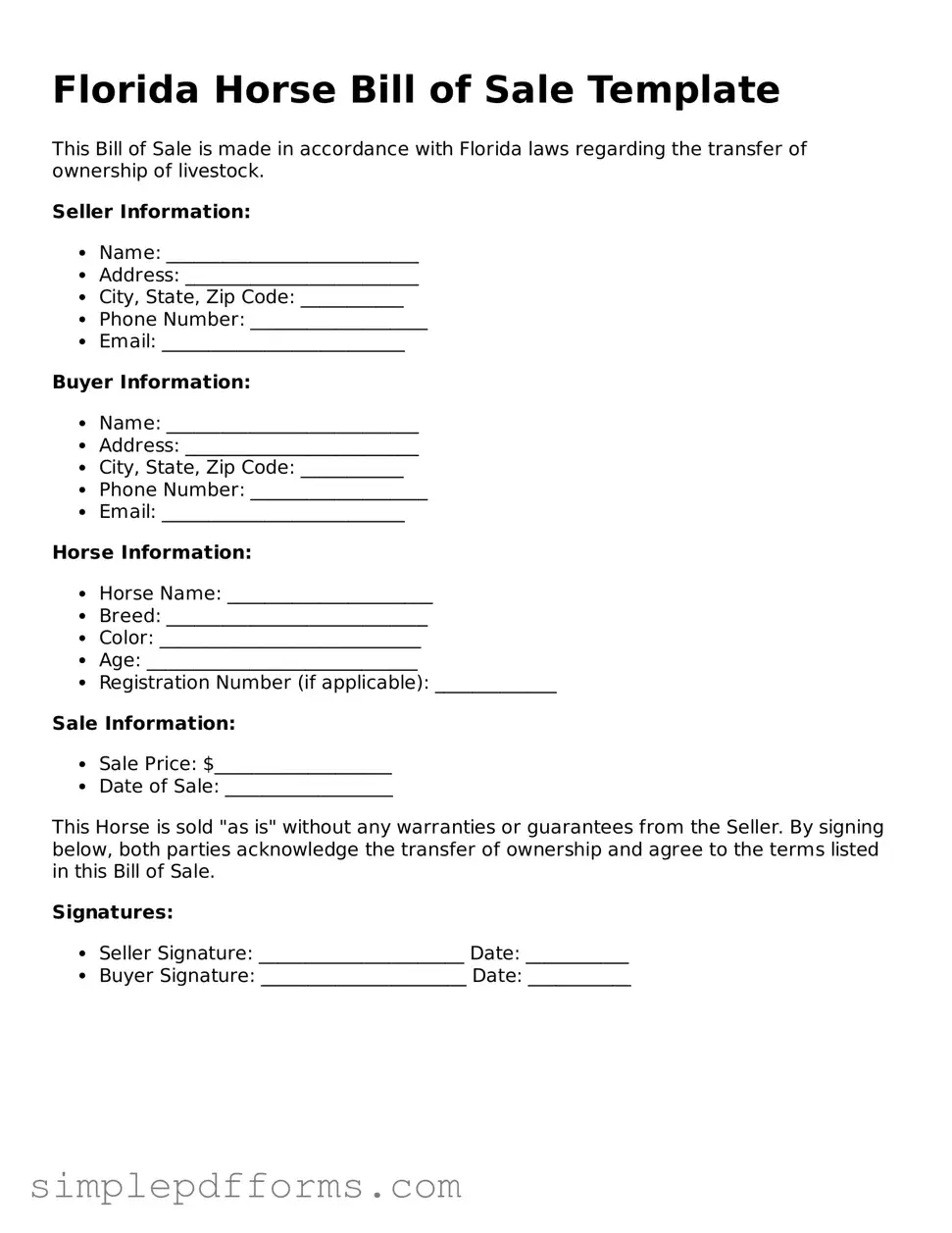Attorney-Verified Horse Bill of Sale Document for Florida State
The Florida Horse Bill of Sale form serves as a legal document that records the transfer of ownership of a horse from one party to another. This form is essential for both buyers and sellers, as it provides proof of the transaction and outlines the terms agreed upon. Understanding the importance of this document can help ensure a smooth transfer process and protect the interests of all parties involved.
Open Horse Bill of Sale Editor Now

Attorney-Verified Horse Bill of Sale Document for Florida State
Open Horse Bill of Sale Editor Now

Open Horse Bill of Sale Editor Now
or
Get Horse Bill of Sale PDF Form
Your form is waiting for completion
Complete Horse Bill of Sale online in minutes with ease.